Fires Burning All the Time
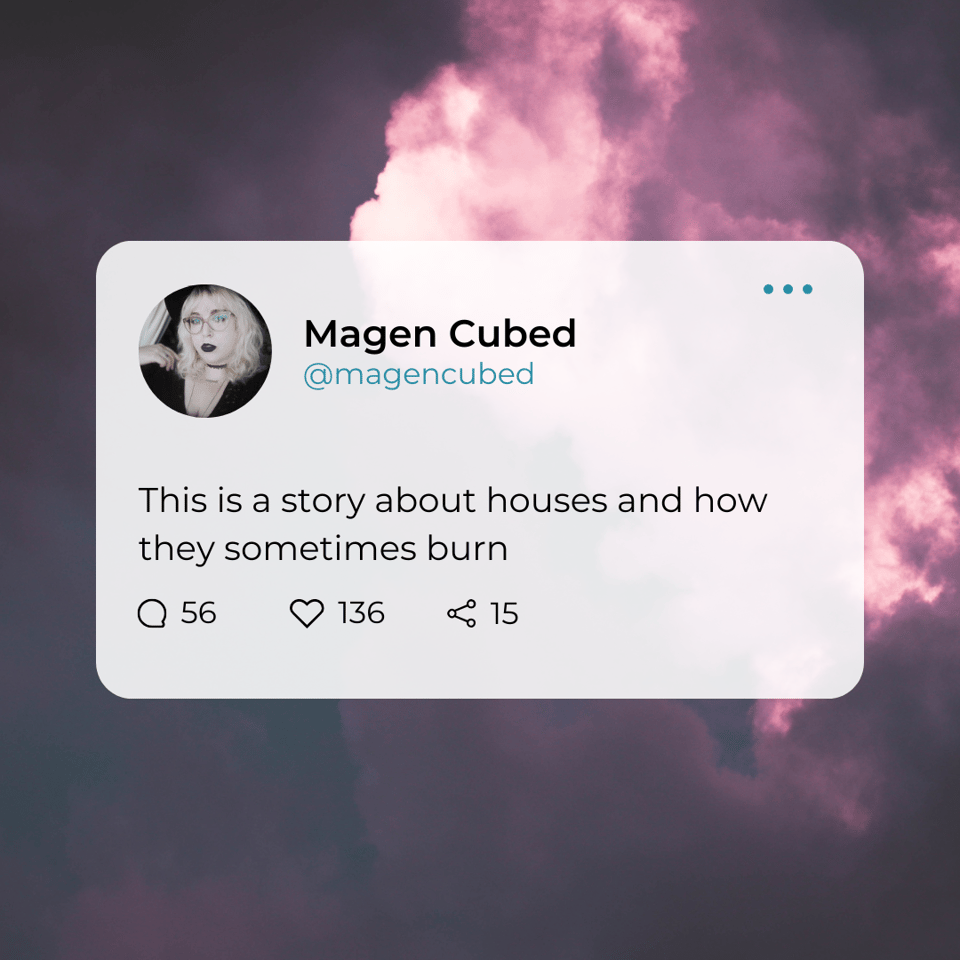
When you move through life with an undiagnosed, untreated panic disorder, you curate a rather nasty collection of fears. Some of them were rather vague, like the fear of being out a little too long, of taking an unreasonable amount of time to get to my destination, when I really should be home. Others were very specific, like oceans, lakes, ponds, or any body of water where I can't see the bottom to touch my feet to it. I came to fear things that never happened or I never did, but could have happened, or I could have done.
One of the most pressing fears I found along the way was my fear of fire. This did not come from any instinctive avoidance of heat or being burnt. I had always loved fire as a child living in rural Texas with unsupervised access to a barrel for burning trash. My brothers and I were often caught starting little fires for the fun of it. On Independence Day, my family would buy up all the big firecrackers and rockets we could get by firing off without alerting the local sheriff. Instead, my fear of fire came from living in a big, messy, rambling house with bad electrical wiring and no money to fix it.
For seventeen years, my family's home was a fire hazard. Fuses blew all the time. We would lose power in the winter and summer from heating and cooling, sleeping on the floor in the living room where it is either warmer or cooler. Long orange extension cords zigzagged across the house to connect the parts that still had working sockets to the parts that didn't. From fourteen to I don't even know when, every night I went to bed certain in that knowledge that it could all burn down around me while I slept. There's a calm in that kind of fear. The when rather than the if.
Fire never came for me, and so I carried that fear over when I left Texas for Florida in 2018. Living on the top of an old apartment building on the shabby side of town makes the fear of fire all the more real. The faulty alarm system that goes off when anyone so much as sneezes too hard doesn't help. Hurricanes and floods are real fears, sure, but fire, too. At least with a hurricane, you know it's coming. You may have time to leave, if you’re lucky and you have somewhere to go and fuel to get there. But a fire could happen anytime. I had prepared for it most of my life.
Maybe I was not prepared for fire so much as I had steeled myself for it. It was still inevitable to me, though the cadence of those intrusive thoughts was less fatalistic than in the past. What would I do when it happened? Would I panic? Would I freeze? Would I act?
With time, therapy, and medication, such fears became manageable, but no less present.
So, all of this, whatever this is, got kicked off because I was watching a doll maker on YouTube who was promoting a mobile phone dragon game. Those words, taken together, may not mean much of anything, and that's fine. What's important to understand is that I love games about taking care of things. Sometimes people, sometimes creatures. As far back as I can remember, I've loved games like this. Whether I was any good at keeping the pixels in my charge alive depended on how well I grasped the game mechanics at the time, especially as a child furiously clicking snacks and toys, but that's outside the scope of this piece. The idea of taking care of little animated dragons seemed very exciting to me at the time, so I pulled out my phone and downloaded the game immediately.
I don't even remember what the game is called. It isn't very important. The game was very well animated with beautiful artwork of the dragons and environments. However, the game was about training, battling, and breeding dragons. I enjoyed hatching and raising dragons. Keeping them warm in their nest, helping them peek through their egg’s cracking shell, and feeding and petting my scaly, surly flying beasts. The rest of it, like managing resources through mining and farming to build better training arenas, was boring and repetitive. I want a dragon to pet, feed, and care for, not battle vikings with. This is very silly to complain about as a 30-something adult, but that's my big takeaway.
I wanted to love the dragons I was raising from hatchlings, but the game just wasn't made for that.
I run into this problem with games a lot. Games not being the things I want them to be. It's my poor choice of games that lead me here rather than any fault of the games themselves, but it's a problem nonetheless. You see, I love the idea of games like Pokémon, but I'm not cut out for them. Coming late to the series on a borrowed system and copy of Pokémon: White, I started with a Tepig (affectionately named Bacon) because I wanted to train him into an unstoppable Emboar. I was enamored with the idea of a full roster of fighting types, maxed out and ready to kick the heads off my opponents. But as I moved my beloved starter over to the newly released Pokemon X, I quickly came to prefer X’s Pokémon-Amie feature over anything to do with battling.
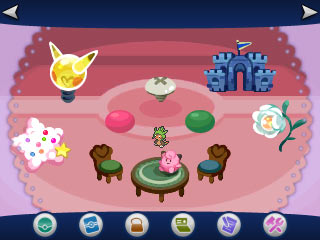
Simply put, Pokémon-Amie allowed players to deepen their relationships with their pocket monsters through pet simulation activities. The Pokémon were always more companions to players than mere animals trained for prize fighting, but X was the first game that let you treat your creatures with the affection you would show a real companion. Getting to care for my Pokémon through feeding them, playing cute minigames together, and decorating their little habitats became the true joy that I took from the game.
Long after I completed the main game and the after-credits story, tending to my Pokémon kept me coming back to X far more frequently than any other entry in the series before or since. I spent over eighty hours playing games with my roster of maxed out fighting types on my break between shifts at the restaurant, deepening my bond with the hulking creatures I had trained up as level one hundred killing machines. That was peak gameplay to me.
As the series drifted away from that high mark, I lost interest. Other games offered other equally silly gimmicks like Pokémon beauty pageants and camping with your roster, but it wasn't the same. I wanted to toss yarn balls at my Chesnaught and feed snacks to my Pangoro.
I had a similar response to Animal Crossing, the slice of life small town mayor simulator. That's the way it’s always felt to me, anyway. I've tried the series off and on over the years, on different platforms and consoles. It was always cute but it never really stuck with me. My enthusiasm for the games waned pretty quickly and eventually I sold my games off to Half-Priced Books to buy some comics instead. My partner Melissa and I spent many months playing Animal Crossing: New Horizons during the 2020 lockdowns, while sitting at home furloughed from our jobs with nowhere to go and a pandemic to hide from. I had nothing better to do, so I might as well actually figure out how to be a good mayor.
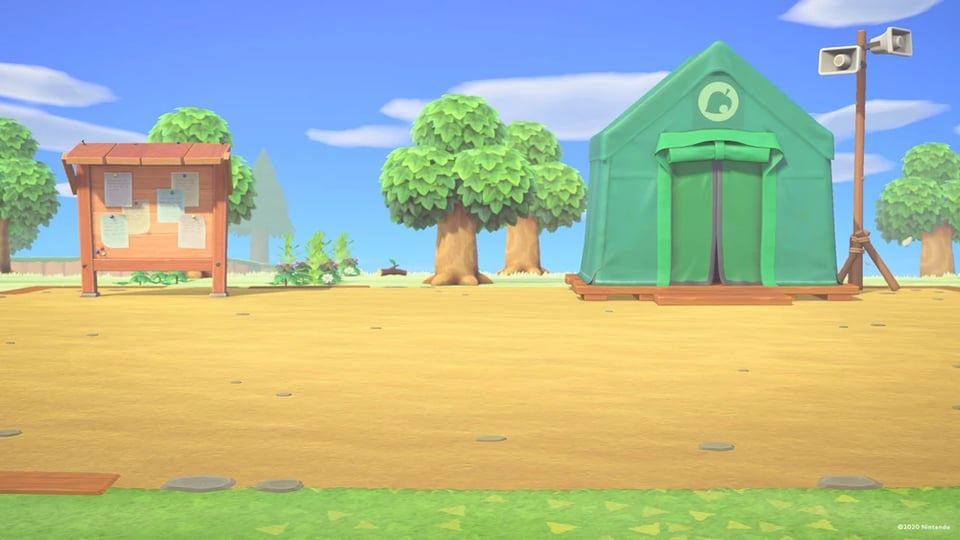
Managing the newly established island settlement is fine, same as crafting furniture or catching fish for the island's aquarium. It's fun enough, yet I would much rather have closer relationships with the villagers. You could go to their houses and speak with them, maybe give them gifts and chat about their time on the island, but you couldn't really get any deeper than that. This wasn't the point of a game where you manage the affairs of an entire island, and it left me wanting more than the game could offer.
The time that I sat down with jock-type Biff when he was having a disagreement with the sometimes gruff yet sisterly Canberra and helped him navigate his hurt feelings made the game feel so alive. (Biff is a precious supportive angel and my favorite villager. I will stand for no Biff slander on this platform.) Sitting under a tree with Marshall, who wore a sailor outfit and nibbled at an ice cream cone, while he explained the independent film he was making (don't ask) is a memory from my time with the game that I will treasure far longer than managing public works projects or chopping wood. Hanging out fireside with KK Slider is nice, but I wanted something more.
So it was with a sense of vague betrayal to the sweet three hatchlings in my brood den that I uninstalled the dragon game from my phone. Then, scrolling through scummy depths of the app store, looking for a pet simulator worth playing, I remembered that Tamagotchi exists.
It was still winter even by South Florida standards on the February morning that I watched lapping flames move blurrily, looping, across my phone screen. The footage of Aaron Bushnell's self-immolation was censored by the time it made its way to me. In a nightgown and bare feet in the last precious few minutes before I got dressed for work, the sputtering cool of my shaking air conditioning unit felt treacherous when staring into pixelated flames. I held my breath as the footage played out. Breathed in. Breathed out. Felt sick.
Air Force serviceman Aaron Bushnell committed self-immolation and spoke his final words “Free Palestine” on February 25th. This has nothing to do with me but for the shells and bombs that rain down on Gaza paid for by my tax dollars. This has nothing to do with me but for living in a country built with the bones and blood and teeth of the people we have consumed and destroyed for our own comfort. I am a bystander but for the knowledge that I am the descendant of many United States military veterans stretching back to the Civil War on either side of the Mason-Dixon Line, myself the product of two Air Force veterans who met and married during their tours. Defending this project that I loathe so much is as much a part of my DNA as anything else.
By Friday of that week, my family's house in Texas burned down. They weren't home when it happened, thankfully. The place I lived for seventeen years was charred to a crisp. My fat old cat Bootsy, left in my family's care when the apartment wouldn't let me take him with me to Florida, passed away in the fire. I wouldn't find out until Sunday afternoon, now March, when I got the call standing in a Target looking at new shelves. The house was now gone and with it my cat and with him an attic full of old dolls and childish things that I thought surely, surely I would have the time to retrieve if I went back home under less strained circumstances.
I spent the day thinking of Bootsy and Aaron Bushnell and Palestine as I assembled new shelves on my living room floor. My brother sent me photos from the house that night. I felt sick all over again staring at the piles of ash where the sofa was or the melted sinew of plastic where the TV stood. Flames made knives to pierce the ceiling and tear into the structure above, bringing the attic to the floor where I had once stood and talked about nothing worth remembering.
These situations are unrelated, but taken so closely together, they make me wary of fire again.
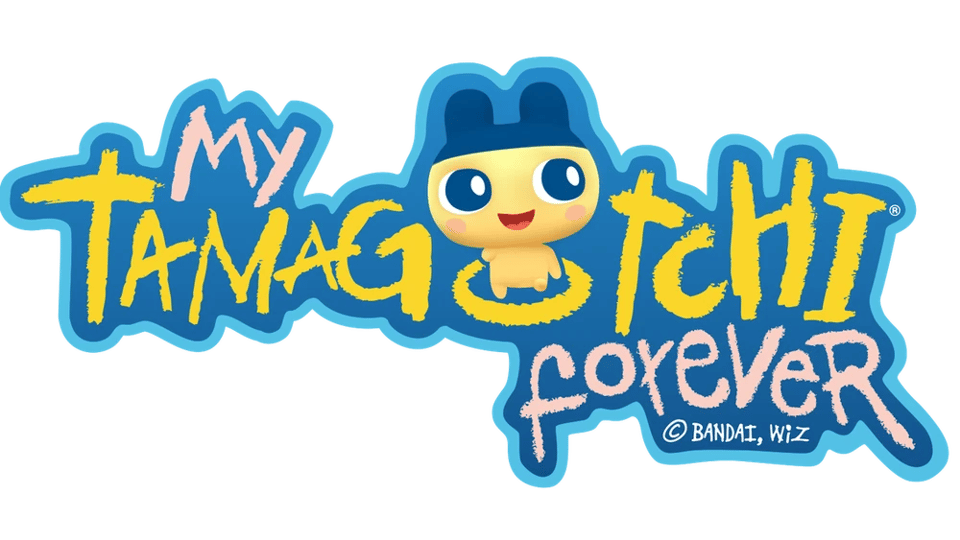
My Tamagotchi Forever is a mobile game that lets you raise and live in a little town with your Tamas. I hadn't thought about Tamagotchi in ages when I downloaded it. Of course, I had a Tamagotchi in the late 90s and early 2000s. Everyone did back then. I can't tell you the first thing about it. If pressed, I could vaguely remember a little guy with duck lips and another guy with mouse ears. Apparently there have been many different versions of the digital pet game over the decades since I tucked mine away in a box, and a dedicated fan base for every iteration, but I wouldn't know anything about that.
Unlike the Tamagotchi I was used to, with its dim little screen, simplistic sprites, and strict rules, My Tamagotchi Forever is breezy. The characters and their surroundings are rendered in pleasant round shapes and bright, friendly palettes. Loose rules around feeding schedules and other care tasks means that there are little to no consequences for messing up. Your Tama sleeps on its own schedule which prevents a true day/night cycle, but it's easy to overlook. Instead of leaving or dying, your Tama grows up, gets a job, and moves to the apartment next door for you to visit and maintain a relationship with. Tamas are also still present in the town, hanging out with other little critters playing sports, gardening, or splashing in the pool or fountain.
Every hour or so, you have to check in on your Tama, feed it, take it to the bathroom to relieve itself, give it a bath, and play games with it. You can buy wallpaper, floors, and furniture to decorate your Tama's house. You can even buy and unlock outfits and accessories for your Tama to wear. Playing games gives you coins to buy more nonsense, as well as completing routine daily tasks like a gamified chores list.
And it was perfect.
Limited in scope and gameplay depth, sure, and full of the same microtransactions as any mobile game. While charming in its presentation, My Tamagotchi Forever definitely felt more like a diorama than a pet simulator. But for what it was, it was perfect for me.
More importantly, it gave me a reason to pick up my phone besides social media. Slicing fruit and stacking cakes in minigames replaced the urge to scroll through the day's most popular Twitter replacement. Figuring out the exact diet to feed my Tamas to unlock the next evolution I wanted spared me from watching people I don't like argue about YouTube personalities I've never heard of.
None of this is to say that I achieved some kind of enlightenment by logging off. I think we all know my brain is too rotten by two decades of exposure to ever get off the internet for good. Logging off isn't really an option for a lot of reasons, either. I made an effort to keep up (as best as I could, anyway) with the compounding horrors of any given news cycle. On Instagram, I tried to stay abreast of direct action and organization going on in my area. I shared things that I felt were important to share to whatever audience I have as a communist fiction writer who keeps a newsletter for sad essays about anime and video games. I followed the work of creators I like and stayed in touch with the usual bunch of people I always talk to online. Beyond that, social media just felt like a place that needed me about as much as I needed it.
By which I mean, less than I had in years past, and even less than that all the time.
The thing of it is, it isn't social media itself that's the problem. (I mean, taken on the whole, social media very much is a problem, but that's just too much to break down right now.) It's the comfortable sensation of the scroll. You know it by now. Are you bored? Sad? Lonely? Angry? Want to tell a little joke? Want to kill a few minutes during your workday? You log on, then before you know it, you’ve lost an hour to nothing.
Yeah, I log on to look at cool art and watch eight-hour YouTube videos about video games I've never played. I find doll makers and short horror films and avant garde art projects and documentaries on the history of typefaces. I love to be online to learn and experience things. But I also have moved through life with an undiagnosed, untreated panic disorder. The internet, specifically social media, finds every conceivable way to exploit that reality. I am a worse person for having been on the internet as much as I have in my life. The worse I feel, the more time I spend online, and so I feel even worse than when I started, which was real fucking bad.
That's really what it comes down to at the end of the day. I don't particularly care whether it's Twitter or Instagram or TikTok or Bluesky. I am susceptible to these companies’ ugly forces. Perhaps not so much in action but in reaction. The anxious, endless scrolling, refreshing, scrolling, refreshing. The paralysis of dread and guilt knowing you could, should, be doing anything else. The watching people rip each other up because conflict (no matter how inconsequential) activates your fight-or-flight response but you have nowhere to go, nothing to do, no way to soothe yourself but look at it.
The news, while bringing terrors of its own, isn't even what weighs me down. It's the endless parade of…nothing. The absence of substance. Being online to be online and subject myself to the abuse of strangers who don't even care what they're arguing about, just the act of arguing. The years of stalking by bad actors who have histories I will not share here. The sporadic burps of harassment from places like KiwiFarms because somebody put up one of my selfies and decided I needed to be beaten down. Freak shit from freak people who made me that avatar of their problems and the enemy that will free them of their burdens once slain.
Addiction runs through my family line in a wide dark river, as do a cocktail of other mental health problems. Without the precedent set by my blood, I’ve known, worked with, and cared about more than a handful of addicts. That's why I don't smoke, drink, or gamble. I don't take recreational drugs and I don't own a gun. I’ve seen how mixing some or all of those things can lead to horrific tragedy.
But social media?
That son of bitch is damn near impossible to quit.
I did learn, however, with medication and therapy and a lot of homework, that sometimes you just need to recontextualize how you think about the things that are hurting you.
Over days and weeks, My Tamagotchi Forever made my phone into an object of play. A site of relaxation. Socialization, yes. Information, sure, and with it, the anxiety of knowing. But when you find yourself picking up your phone to play a match three game with a virtual pet for ten minutes rather than stare into the abyss of your social media feed, the instinct to log on -- to harm yourself in that easy, comfortable way -- begins to lose its urgency.
At Christmas, my worst fear came true. There was a fire in an apartment down the hall on our floor. Melissa was busy wrapping gifts when the fire alarm began to blink and scream. I dropped whatever I was doing in the kitchen to grab our dog, Cecil. We have enough false alarms to be a little slow-moving in situations like this, but Melissa opened the door to find the hallway full of dense smoke and a charred smell.
I didn't panic. I didn't freeze. I put the dog in his carrying bag and found my phone, wallet, and keys. Ever the preschool teacher, Melissa stood in the hallway and clapped and shouted for all our neighbors to come out. I held open the door to the staircase as all the neighbors on our side of the hall filed out in their pajamas and slippers, housecoats and slides. It turns out a lady’s stove caught fire while she cooked dinner. She's fine. The fire department let us back into the apartment within an hour or so.
The scariest thing that I could ever think of finally happened, and I did pretty okay. I thought that was a good sign. All that medication and therapy had come through for me. I didn't yet understand that setting fires at the end of the year meant they kept burning through the next one.
I’m not afraid to admit that I’m now obsessed with Tamagotchi. The silly little phone game rewired my brain so effectively that I spent months playing it. Diligently checking my notifications for status updates, stopping what I was doing to feed and bathe my Tama. Taking breaks from work to play minigames and redecorate my Tama’s house. It felt so good, so pure, to dress a little digital creature in a sweater and a beret or a pink cheerleader outfit.
Come springtime, I got the itch for something more tangible than an app. My fingers wanted the weight of plastic and metal again, chunky pixels on a gray screen. Fortunately, Tamagotchi technology has come a long way since I was fourteen.
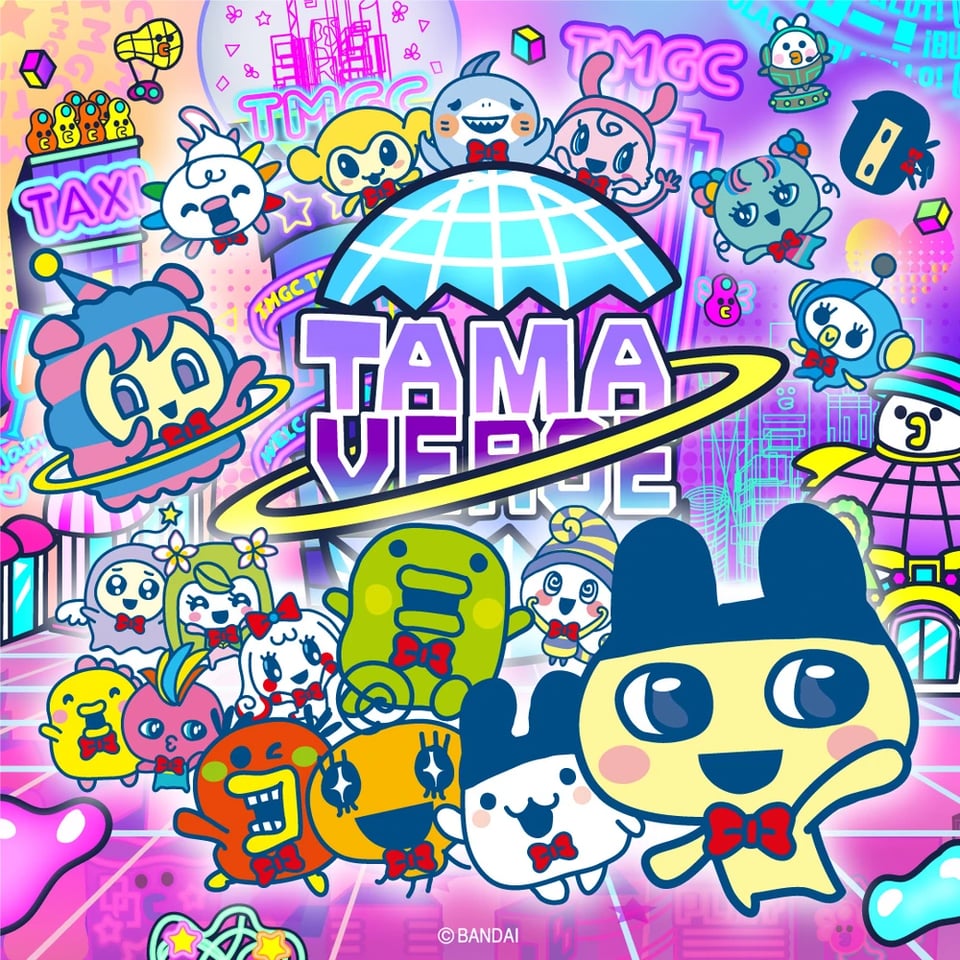
The latest game, TamagotchiUni, is a truly goofy and remarkable invention. It allows you to raise unique Tamas with their own personalities, likes, dislikes, and quirks. You dress them and play minigames at the arcade. You go to the farm to gather materials for crafting projects and go to the mall to shop for hobbies and furniture. You go on walks with them so they count your steps, and take them to the TamaVerse online VR meeting space. They can even date other Tamas they meet online and get married. There's tournament games and special events and accessories and snacks and toys to collect. It's so silly. I absolutely adore it. And it's in color, baby.
I have a big, chunky plastic purple egg that I wear on a lanyard around my neck. It allows me to always have my Tama with me. It chirps and beeps when I walk to keep track of my steps. People remark on it when I go out and ask how it works and where I got it. It makes people excited to see it in a way that feels really…I don't know. Sweet? Wholesome? Anytime a kid tries to grab it to play with, I have to just laugh at how much everybody seems to love a little pixel pet in a chunky plastic egg.
I can sometimes be admittedly pessimistic about technology and how it impacts our ability to communicate, but it can inspire warm feelings, too.
A few weeks ago, I said goodbye to My Tamagotchi Forever and uninstalled it from my phone. Its limitations as an app had worn thin, and while I truly loved my time with it, I wanted to focus on the new physical game. Two Tamas at once is a lot, especially when you have a small dog to carry around who yells at you for attention as it is.
But as I set my Tama to take a quick afternoon walk with me, I make an effort to head outside, down the stairs, and around my apartment for the game to count my steps, and it feels better than just picking up my phone to look at nothing.
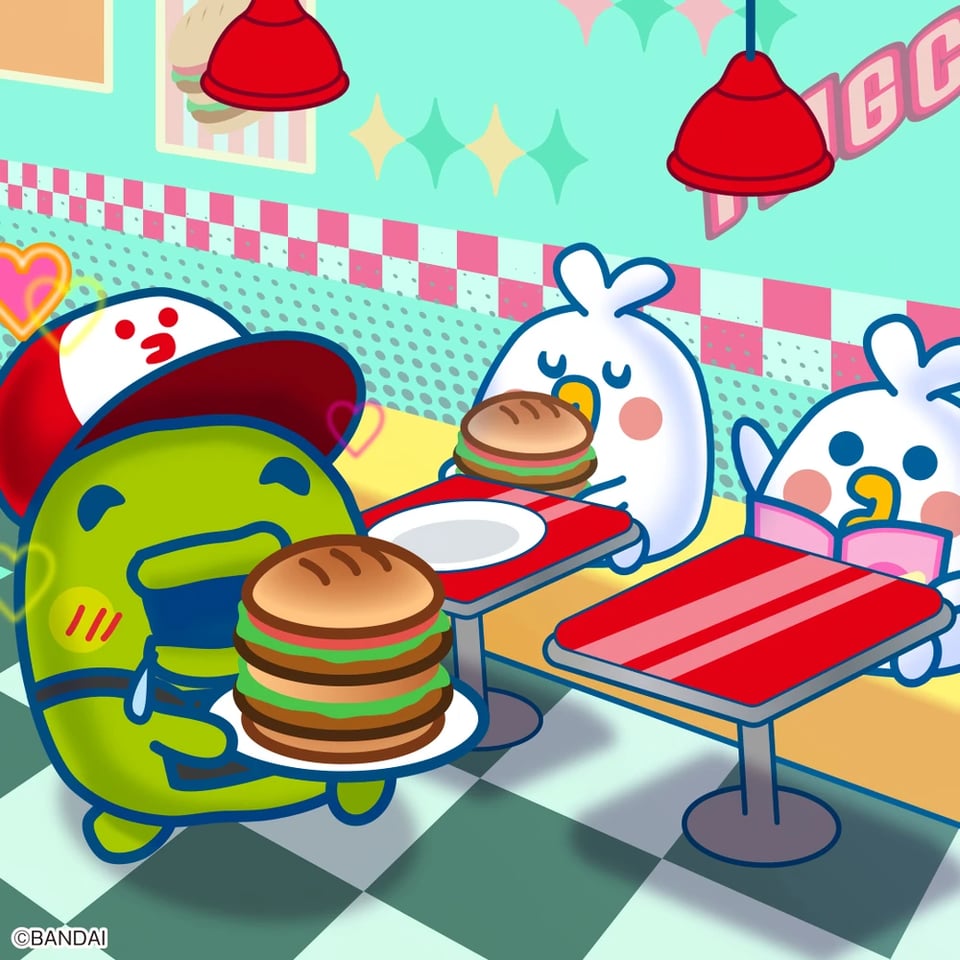
During one of my last sessions with my psychiatrist, she asked, “What would it take for you to go back home?”
I said, “The worst case scenario.”
She asked, “And what qualifies as the worst case scenario?”
I said, “An act of God. Or a death.”
I didn't say fire, but I meant fire.
“And what would you do in case of an act of God?”
I paused. “Go home.”
“And do what?”
I didn't have an answer, which I knew was an answer.
The worst case scenario did happen eventually. I just wasn't present for the fire the way I always thought I would be. It didn't make me run home the way I always thought it would, either. The sudden stab of panic, the kind that led to booking a flight or a bus ride back to Texas, never came. Getting the news felt like the escape of a long-held sigh rather than the startling violence of a depressurized cabin. It hurt, I hurt, it all hurt, but with it came a kind of release that feels impossible to put into words.
The worst thing that could have ever happened did.
So, now what?
The only resolution I could come up with at the end of 2023 was “I want to live more deliberately.” I don't usually do new year's resolutions. They feel a little overwrought for what they symbolize. New beginnings and all that. I recognize resolutions as just a to-do list dressed as radical lifestyle changes and don't pay them mind as such.
This year, however, I felt compelled by some alien desire to say that I wanted to live more deliberately in 2024. I didn't know what that meant. I still don't, to be perfectly frank. It feels like the ethos of a slow-living social media account or YouTube channel. I think of a woman wearing a linen dress and washing rice to a soft copyright-free piano track.
For me, the best definition that I could come up with was I wanted to treat my life as one worth living. I can tell you that I have spent many of my thirty-seven years in this body waiting to get shit over with. Every moment has been a transition from one stage to another, like a hallway connecting rooms that I can't seem to ever make it to. I wait for the day to end so I can be done with work. I wait for the weekend so I can relax. I wait to go to sleep so I can start the next day. There's always another door to another hallway and the promise of something real and good on the other side.
In those moments, the intrusive thoughts thrive. And so I want to silence them by moving quickly to another time or place.
I think it was right around Christmas-time, just before the small fire in our building, Melissa and I bought new matching pill cases for our medications. Pastel pink with gold interiors and mirrors inside, the cases are designed like compacts. I used to never think much at all about taking my vitamins or antihistamines. I would pop open a bottle and take a pill or two with water. Over time, doctors added more prescriptions to my nightly routine. Standing over the sink with stacks of bottles felt like a chore to be rushed through rather than a part of my life.
But then we got new pill cases. Now, every Sunday night, I take my prescriptions from their home in the bathroom cabinet and carefully arrange the dosages in their designated slots. Doing this takes time. It is pleasant to do, like feeding or playing with my Tama is pleasant. I set aside my phone and the distraction of music or podcasts to wash the dishes. These are moments that I carve out for myself to sit with my thoughts. Medication and therapy has made them calmer than they’ve ever been, and I enjoy their warming silence in a way I can't say that I have before.
It feels like a hollow platitude, but sometimes it is nice to think of quiet moments as worth the experience of living them.
At the end of March, nearing the far-too-early Easter, I found myself in a bookstore in Miami. I know it wasn't really Miami, but people outside of Florida don't know anything but Miami, so for all intents and purposes, it was Miami. Melissa and I went to listen to Hanif Abdurraqib read from his latest book and have a Q&A session with O, Miami founder, Scott Cunningham. This is the second conversation between Abdurraqib and Cunningham that we've seen, having attended an O, Miami event during last year's Poetry Month.
Abdurraqib, wearing one of the coolest jackets I've ever seen, leaned, perhaps draped, over the podium. He angled the microphone to his mouth and read aloud from his book There's Always This Year, documenting the week Columbus spent burning jerseys after LeBron James left the Cleveland Cavaliers for the Miami Heat. It felt appropriate that the hurt, the betrayal of wounded Cavs fans was expressed as a week of burning trash cans on every corner, jerseys doused in lighter fluid and tossed into the flames.
Speaking with a poet’s melodic precision, a practiced assembly line of words drummed out straight into your chest, Abdurraqib transported the room from Florida to Ohio. He described this spontaneous purging ritual as a love so strong that it allowed itself to become a city's hate. It was the profound vulnerability of loving someone, something, so deeply that you allow it to hurt you. You make an enemy of it in a process Abdurraqib referred to as self-immolation, when burning away the ability to feel pain leaves only a numbed sensation. He told it better than I did.
Sitting on a folding chair in a tiny bookstore, listening to a man talk about fires that burned both within and without the body, it felt as if flames were fated to follow me wherever I go.
It's difficult to express what I feel about the house that now stands, half-burnt, alive and yet not. At time of writing, nobody can decide if it will be rebuilt or demolished. My family wants it restored, which is fair. They stayed to live within it when I escaped its -- their -- gravity well for the east coast. I want the house dead for the same reasons that I miss the way it was. The house didn't have the decency to turn to ash. Instead, it lingers on in ugly photos of blown-out glass and singed plastic. Blackened metal and burnt wood.
I miss my cat. I miss my room. I miss the dolls and toys and trinkets I left boxed up in the attic. I miss when I wasn't so angry at the people who live in the house for all the things that happened there.
But those things happened in other houses, too. A farmhouse in the middle of nowhere. A shabby apartment in the city. I'm not angry at those places like I am at this house. Perhaps I'm angry at the house for leaving me without a place to return to. It always felt like it would be there for me if I needed it. That's a child's wish, I guess, and I've raised myself into someone steadier on her feet.
My old Tamagotchi didn't make it when the attic burned. That feels fitting. Whatever comes of the house now, I survived it.
All images courtesy of the Tamagotchi Fandom Wiki, the Animal Crossing Fandom Wiki, and Bulbapedia respectively.
Add a comment: